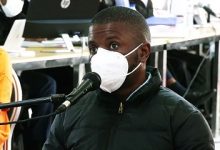So nothing is ever settled in politics, huh?
After similar socio-political upheavals in Mali and Burkina Faso, comes Niger.
Yes, of course, they are all neighbours and once the political upheaval bug had bitten someone there, it could be expected that (like Covid-19) it would at least try and move towards “pandemic” status.
But it’s still a shock. For few could have predicted that after all the vitriol that had been poured on the recent activities in the region of – in particular – the nebulous Russian mercenary/ freelance force, we would be looking into the barrel of a rifle once again, and (inevitably) see shadowy military figures in fatigues, whose presence conjures up images of Wagner lookalikes?
In fact, we probably won’t know the full truth, for quite a while. In the meantime, some nasty realities stare us in the face. A constitutionally-elected President has been overthrown and detained by forces led by his own presidential guard.
The top military brass who could have reversed the coup and put the President back in power, have joined the “rebels”. (Or so it appears). Are they acting in complete freedom? We don’t know!
But we need to find out whether the elected President has done something that contributed to bringing his country to this horrible pass? For let us not make any mistake about it: we have seen, in the past, too many ambitious soldiers make interventions, upon many a logical-sounding premise that, in the end, proved to be hogwash and a mere pretext to seize power.
The question, as far as it relates to Niger, is not easy to answer. Demonstrations at the weekend in support of the coup brought into the streets of Niamey, some of the largest crowds ever seen on the city’s streets. Even given the fact that the phenomenon of “rent-a-crowd” is not unknown in West Africa (as seen often elsewhere) the TV pictures from Niamey were quite staggering. The Economic Community of West African States (ECOWAS) applied its usual remedy of giving the coup-makers “one week” within which to reinstate the ousted President, Mr Mohamed Bazoum.
ECOWAS also imposed sanctions on the new military leaders, and threatened to use force against them if they fail to reinstate Bazoum.
The Niger coup leaders, on their part, have warned ECOWAS against ‘military intervention’. But the African Union (AU) added its voice to the demands of ECOWAS, although the AU somehow extended the period during which Mr Bazoum should be reinstated, to three weeks.
Like most military coups in Africa, this Niger takeover contains seeds of its own demise. To begin with, it is General Abdourahmane Tiani, head of the presidential guard, who has declared himself the leader of the new regime. But will that be acceptable to the rest of the top military brass, many of whom must be his seniors?
More important will be the “ideological” inclinations of the new regime’s leaders. The ousted President, Mr Bazoum, has been described as one of a “group of elected presidents and pro-Western leaders in the Sahel”. In the wake of an armed conflict with jihadists which has seen the murder of many civilians since 2020, there have been coups in Mali and Burkina Faso, which are being linked to this Niger change-over as a matter of course.
Niger’s former colonial ruler, France and its European Union partners have suspended security co-operation with Niger, but that seems somewhat academic, seeing that those countries were unable to protect the ousted president, despite whatever security co-operation agreement(s) he had with them. Indeed, during the demonstrations in support of the coup leaders, anti- French actions took place, including the stoning of the French embassy in Niamey. Meanwhile, the United States has warned that its aid to Niger could also be at stake.
Could ECOWAS use force against Niger’s new regime, as it has threatened? In 2022, ECOWAS agreed to create a “regional security force” to intervene against armed groups in ECOWAS countries and prevent military coups, but details on the force and its funding have not been made public.
Apart from threatening the Niger coup leaders with military intervention, ECOWAS has also imposed financial sanctions on the coup leaders and the country, and frozen “all commercial and financial transactions” between member states and Niger.
However, in a defiant in a statement read out on national television on Saturday evening, a member of Niger’s new military government, Amadou Abdramane said the ECOWAS’ aim was to “approve a plan of aggression against Niger, in the form of an imminent military intervention in Niamey”. Such an intervention, he claimed, would be “in cooperation with African countries who are not members of ECOWAS”, aided by “certain Western nations”.
Strangely, the president of Chad, General Mahamat Idriss Déby Itno, arrived in the Nigerien capital, Niamey, on Sunday to take part in an attempt by Chad to help resolve the Niger crisis. It sounds strange because –he was made President by the military in Chad, after his father had been killed in a civil war that was going on in Chad.
BY CAMERON DUODU






